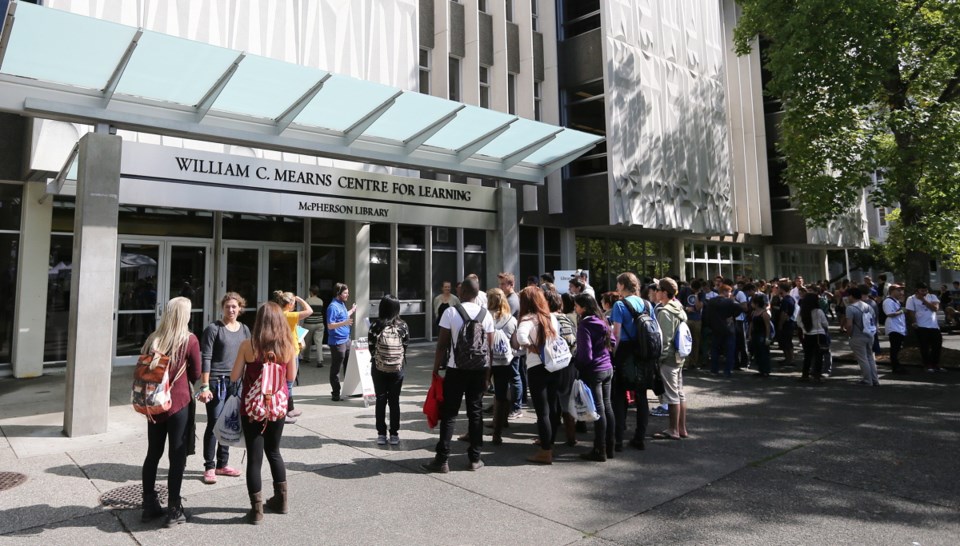University graduates who entered the B.C. workforce on the brink of an economic downturn in 2008 emerged with lower unemployment rates and higher salaries than non-grads, a new report says.
“Today’s survey shows that the skills and knowledge these students acquired at a B.C. university prepared them to take advantage of the economic recovery,” said Andrew Petter, chairman of the Research Universities’ Council of British Columbia, which authored the report. The organization represents the interests of B.C.’s six major universities.
The survey followed graduates from the University of British Columbia, Simon Fraser University, the University of Victoria, the University of Northern British Columbia, Royal Roads University and Thompson Rivers University.
It found that, five years after collecting their degrees, the graduating class of 2008 had an unemployment rate of 4.7 per cent — well below the overall rate of 6.6 per cent in B.C. and the provincial youth unemployment rate of 12.9 per cent.
Also, those graduates were earning a yearly average of $60,000, and 96 per cent worked in jobs that required a degree.
“Students from every one of our programs are succeeding in the job market,” said UVic president Jamie Cassels. “Many of our programs lead directly to a career, and all of our programs equip students with the skills of critical thinking, problem-solving and communication that will serve them so well in the long run.”
“We have a close relationship with employers through our co-op program and different community partnerships, and they tell us that these are the kind of skills they need.”
The lowest unemployment rates in the report were in the health field, at 0.5 per cent, and the highest were in the arts and sciences at 6.3 per cent.
The report’s findings are boosted by Statistics Canada job numbers for 2013, which showed employment rates for people with university degrees were above 74 per cent, while employment rates for those with a certificate or diploma were 70 per cent, and with a high school diploma were 60 per cent.
Jennie Christensen, 39, is an environmental scientist who completed her PhD at UVic in 2008. She spent much of her academic life focusing on technical skills, such as applied toxicology, which she used in her environmental-monitoring career. But in her current job as an environmental services manager for Stantec in Sidney, the non-tangible skills she learned in university are just as valuable, she said.
“Mentorship, leadership skills, collaboration, learning how to present better and use criticism — these became very valuable,” Christensen said.
Ken Stephen, 29, started out studying engineering before graduating with a commerce degree from UVic in 2008.
There wasn’t a lot of fear among his classmates about job prospects, he said, and many took advantage of co-op placements to gain practical experience.
“I was fortunate in that I had secured a full-time role before I graduated. My final co-op was with a local tech company and they offered me part-time work after my co-op while I was finishing classes, then full-time work once I finished my degree,” said Stephen, who is now manager of mobile distribution at Go2mobi.
“I imagine it would have been very difficult to finish my degree without anything career-specific on my resumé other than classwork.”
Now that he’s in a position to hire, Stephen has some advice for new graduates: “Get real-world experience. Many employers see education as a must-have, but it's the real-world experience that will set you apart. … That new strategy landed me my current role in almost no time at all. Don’t assume that a degree will guarantee you a high-paying role. Be prepared to take an entry-level job and work your way up.”



